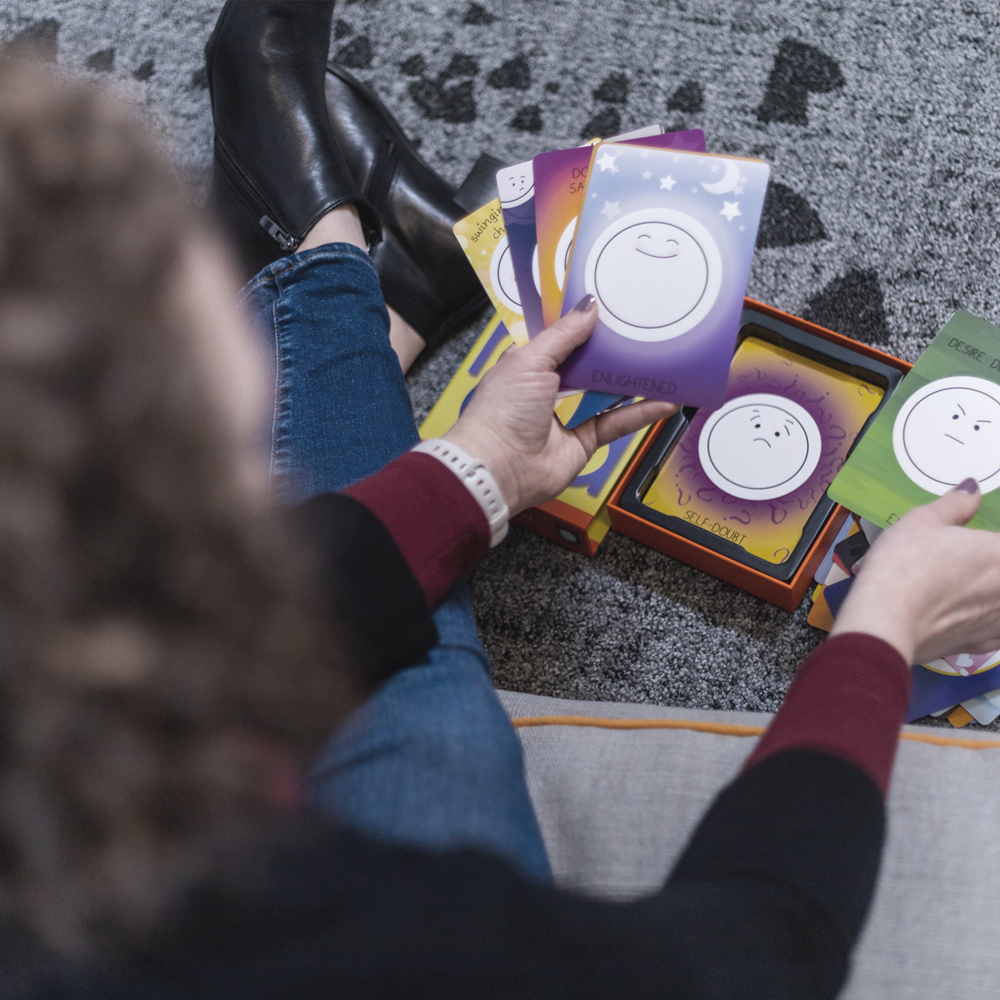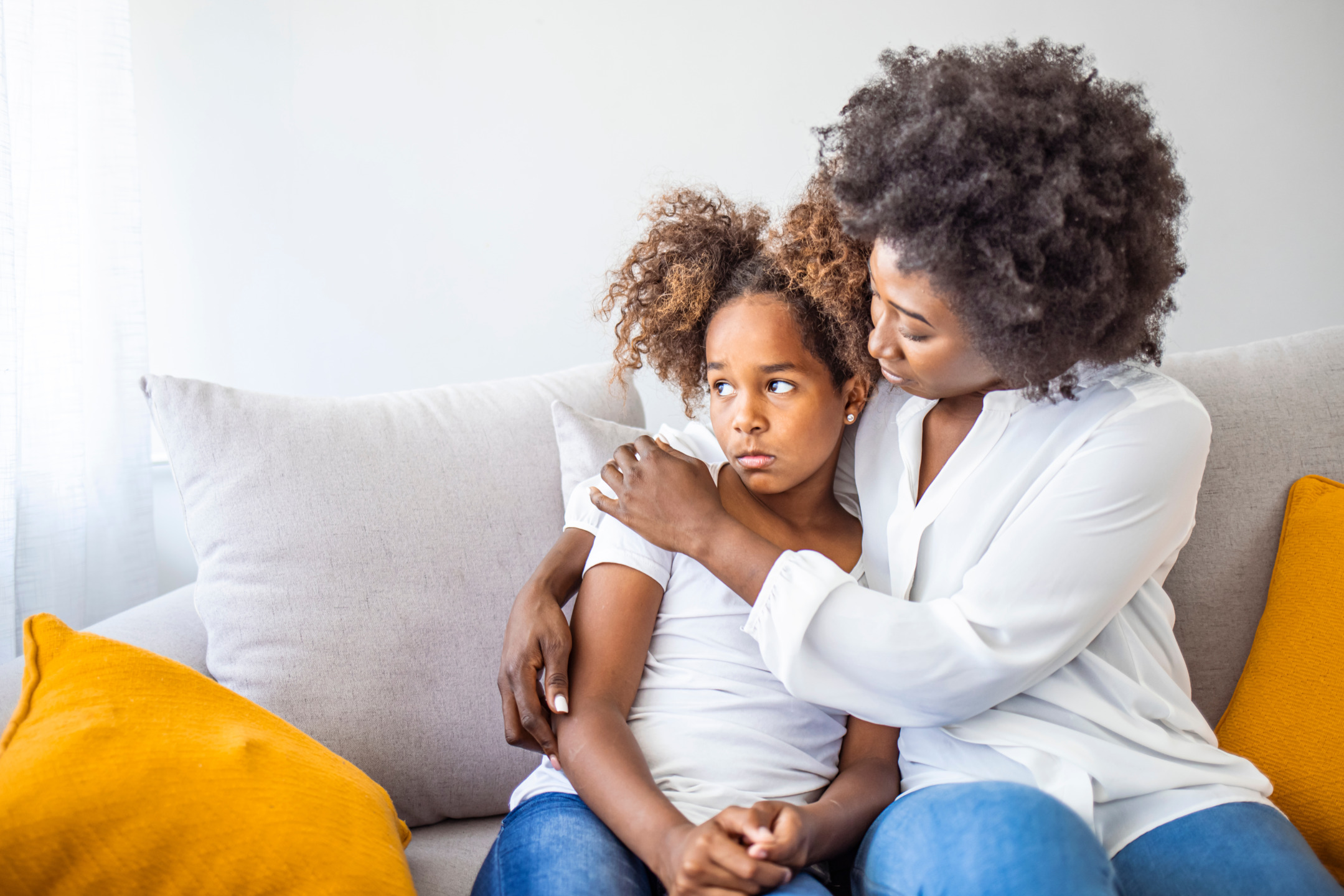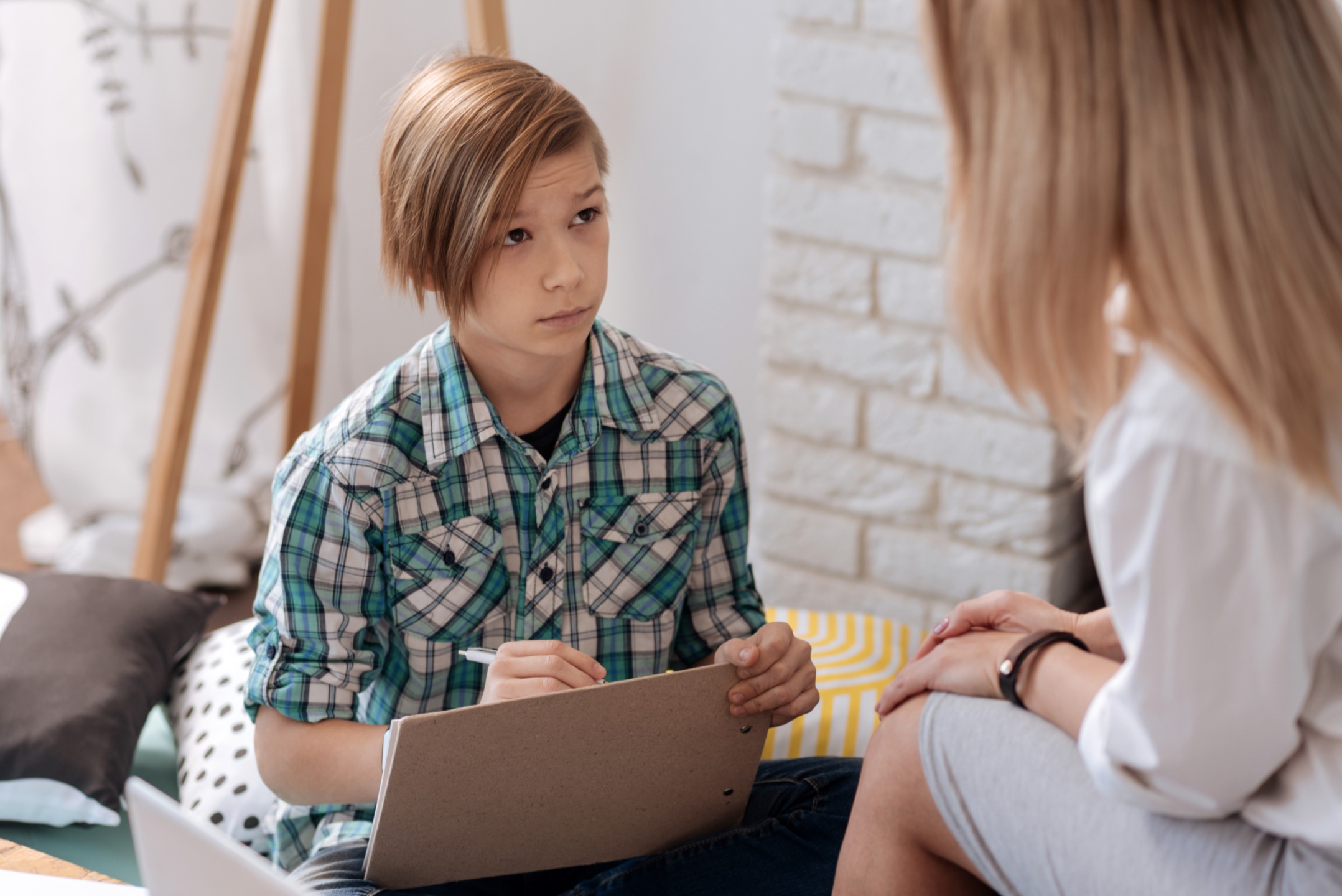Helping Children Reach Their Fullest Potential
Anxiety and Mood Disorders are Increasingly Common in Children
For our children to reach their fullest potential, we know that emotional health is as important as physical health. Psychiatric disorders such as anxiety disorders, depressive disorders, ADHD, and trauma are some of many mental health problems that impact emotional development in youth. Additionally, environmental stressors such as social difficulties, academic problems, and ongoing family conflict can also have a significant impact.
At The Ross Center, we work with children, adolescents, and their family members to combat common mental health problems, such as childhood depression, social anxiety, phobias, separation anxiety, adjustment problems caused by young children and adolescents struggling in school, as well as other typical fears and worries. Our specialized child psychologists, therapists, and psychiatrists offer age appropriate treatment for children as young as 2 years old, teaching behavioral strategies and coping skills that reduce the symptoms of anxiety, depression, behavioral problems, and other mental health disorders.
Children and adolescents are dealing with more anxiety and mental health problems then ever before; family, school, and social pressures are common. While nervousness, fears, worry, and sadness are normal experiences for everyone, sometimes these experiences can be overwhelming and significantly impact a young person’s life. Up to 12% of children are affected by anxiety disorders, with symptoms often appearing in children as young as pre-school age.

Signs and Symptons
When to Seek Treatment
Our clinicians all have expertise in both clinical mental health and forensic services, bringing skills and compassion to interviews and evaluations that helps elicit key findings.
We collaborate internally, when appropriate, to provide clients with both a psychological and psychiatric medical perspective. With an objective, evidence-based approach, we offer comprehensive evaluations, impactful reports, and expert witness testimony that illuminates the impact of mental health on issues of competency.
- My child avoids taking risks that other kids his age engage in.
- My child won’t go to birthday parties and avoids social situations. She won’t speak to anyone outside the family.
- My son’s anxiety seems to last longer than his friends. He is always worried and asking us for reassurance.
- My middle school age daughter won’t sleep over at friend’s houses.
- My child refuses to go to school for days at a time.
- My teenage son is always complaining about headaches and stomachaches and our doctor tells us he is anxious.
- My child is much more active than his friends and he can’t pay attention in school.
- My child is having difficulty sleeping. His normal sleep patterns have been totally disrupted.
- My child has excessive fears and phobias of specific things like dogs, thunderstorms, insects, or getting sick.
- My child’s behavior has changed; she seems less interested in activities she used to be into or less engaged with family and peers than before.
We Can Help
The Ross Center’s Child and Adolescent program includes highly trained child psychiatrists, psychologists, counselors and therapists who provide evidence based assessment and treatment. A typical assessment includes a focus on your child’s strengths and weaknesses in order to understand your child in the context of their environment, both at school and at home. Our treatment providers value the importance of ongoing clinical consultation with important figures in your child’s life. We regularly work with schools, pediatricians, and others in order to inform the most comprehensive and effective treatment.
Our team of psychologists and therapists have advanced training in a range of therapies, including cognitive behavioral therapy(CBT), dialectical behavior therapy (DBT), and family therapy. In addition, our child and adolescent psychiatrists have specialized training in pediatric mental health, and can prescribe medication when necessary that is appropriate for your child’s condition.
Psychological and neuropsychological testing are also helpful tools when trying to understand the source of a young person’s struggles. Often these kinds of assessments are recommended by school and medical professionals in order to gain a more comprehensive understanding of a child or teen’s cognitive and academic strengths and weaknesses. An assessment of social and emotional functioning can also provide a more detailed understanding of a young person’s personality and temperament. All of these assessments are offered at The Ross Center.

Parents are integral to treatment
Parent and Family
Support
A positive treatment outcome is impacted by good family support. Parents are always included in our initial consultations and they are an integral part of a child or teen’s treatment. We recognize how important it is to teach parents and often the entire family the best ways to respond to your child or teen during their times of need
Parent support is often recommended with school age children. Your child’s clinician can teach tools and strategies to support you in responding most effectively when your child becomes anxious or is acting out. Parents can come for their own treatment or as an adjunct to their child’s treatment.
Specialized Parent Training:
Supportive Parenting for Anxious Childhood Emotions (SPACE)
Clinicians in our New York and Virginia offices are offering a new parent-based treatment to address child and adolescent anxiety called SPACE.
This novel approach was developed at the Yale Child Study Center by Dr. Eli Lebowitz, and is a systematic program that teaches parents how to supportively and appropriately respond to their child’s anxiety through changes in their own behaviors. Learn more about this parent-focused training.

Does My Child Need Counseling?
It is better to seek care earlier if your child is struggling.

Helping your Children Manage Back to School Anxiety
It’s time to go back to school. Learn strategies to help reduce your children’s anxiety and prepare for a successful new year.
Ross Center Resources Geared to Parents
Is your Child Struggling with Mental Health? Wise Words from an Esteemed Psychiatrist
Managing Family Stress this Winter
What Does a Child Psychiatrist Do?
Groups and Events relating to Children & Adolescents
7 Week Sessions.

ADHD Diagnosis, Treatment, and Promising Interventions
Expert psychiatrist leads training on mental health and the problematic use of internet and video games
Escape from Escape: Introduction to Digital Use Disorders
Expert psychiatrist leads training on mental health and the problematic use of internet and video games

Podcast – Social Media and Video Gaming: What should parents be concerned about and what can they do?
Listen to this podcast on how parents can monitor, control, and support their children’s use of social media and video games

SPACE Training: A 7-Week Group for Parents of Anxious Children
Group for parents of anxious children ages 5 and up. Now available for parents of high school students.

Resilience Builder Program®
Group therapy to teach resilience skills to children (8 – 12) who struggle with social anxiety and excessive worry

Medications for Children and Adolescents – An Overview for Psychotherapists
A FREE zoom workshop for therapists who want to learn about medications used to treat children and adolescents.








